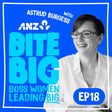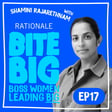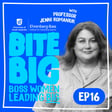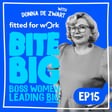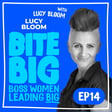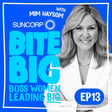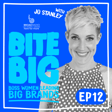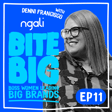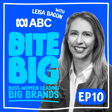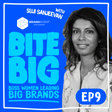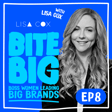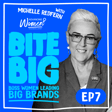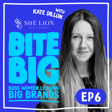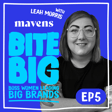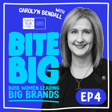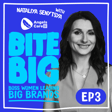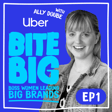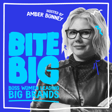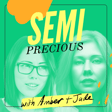
Amber Bites Big with Fatuma Ndenzako - Co-Founder @Collective Closets
In Episode 2, Amber Bonney Bites Big with guest co-host Fatuma Ndenzako a new generation boss woman and co-founder of Melbourne-born brand Collective Closets, a slow fashion label that celebrates African/Australian heritage.
Inspired by Amber's own Mantra, 'bite big and chew like hell', in this episode, Amber gets under the skin of Fatuma's personal mantra, 'Always be kind, life is too short to not be kind to others'. We look at how Fatuma's own mantra came to be through her family and community, how it has filtered through her life from when she was growing up, to how it has impacted her work decisions.
We get under the hood and discuss the impact that previous generations can have on an individuals own outlook, and how Fatuma's, 'Give Back' philosophy intertwines with her mantra and her business, and how this ultimately helps to empower others. We talk about the business of kindness and how this has influenced Fatuma's ethical fashion business in terms of sustainability and the support of women both here and in Kenya.
Don't miss this exciting episode to give you a very different perspective on what the fashion industry is doing and how it is changing for the better both here and abroad thanks to people like Fatuma.
This episode is dedicated to a charity close to Fatuma's heart, Sisters Inside - a charity supporting criminalised women, girls, children, and families both inside prison and out. As Fatuma states 'we all make mistakes it doesn't have to shape the rest of your life'.
If you would like to know more about our host Amber Bonney her business The Edison Agency or co-host Fatuma Ndenzako you can connect and follow these boss women via the socials links below!
Collective Closets Instagram
Collective Closets Linkedin
Fatuma's author recommendation James Bowen
The Edison Agency's LinkedIn
The Edison Agency's Instagram
Amber's Instagram
Amber's LinkedIn
Sisters Inside
